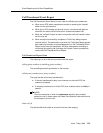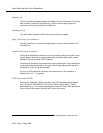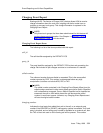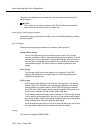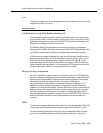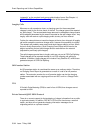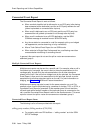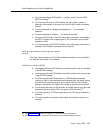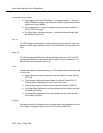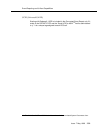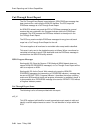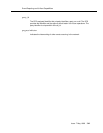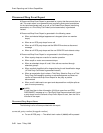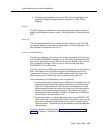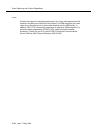
Event Reporting and U-Abort Capabilities
Issue 7 May 1998
3-37
■ For incoming call over PRI facilities — “calling number” from the ISDN
SETUP message
12
.
■ For incoming calls over non-PRI facilities the calling party number is
generally
not
provided. In this case, the Trunk Group number is provided
instead.
■ For calls originated at a bridged call appearance — The principal’s
extension
■ For calls originated at a station — The station’s extension
■ For incoming DCS calls, if the DCS calling party information is available to
the ECS (if a station with a display gets it), this information is also made
available to ASAI.
■ For incoming calls over R2-MFC facilities, if the calling party information is
provided, it is collected and passed onto the adjunct.
trunk group number and trunk group member
number
The Trunk Group number and Trunk Group Member number are only provided if
the Calling Party number is unavailable.
called party number (DNIS)
■ For outgoing calls over PRI facilities, the called number is the one included
in the SETUP message.
■ For incoming calls over PRI facilities, the called number is the one provided
in the SETUP message.
■ For incoming calls over PRI facilities to a VDN that does lookahead
interflow on calls, if the lookahead interflow attempt fails, the called number
provided is the principal extension of the dialed number. If the interflow
attempt is successful, the Called Party number is provided as the default.
■ For incoming calls over non-PRI facilities, the called number is the principal
extension [may be a group (TEG, hunt group, VDN) extension
13
].
■ For incoming calls to a TEG (principal) group, the TEG group extension is
provided.
■ For incoming calls to a principal with bridges, the principal’s extension is
provided.
12. See ‘‘Event Reports’’ Section in Chapter 12, ‘‘ASAI and Feature Interactions.’’
13. If ECS is administered to modify the DNIS digits, then the modified DNIS is passed.



